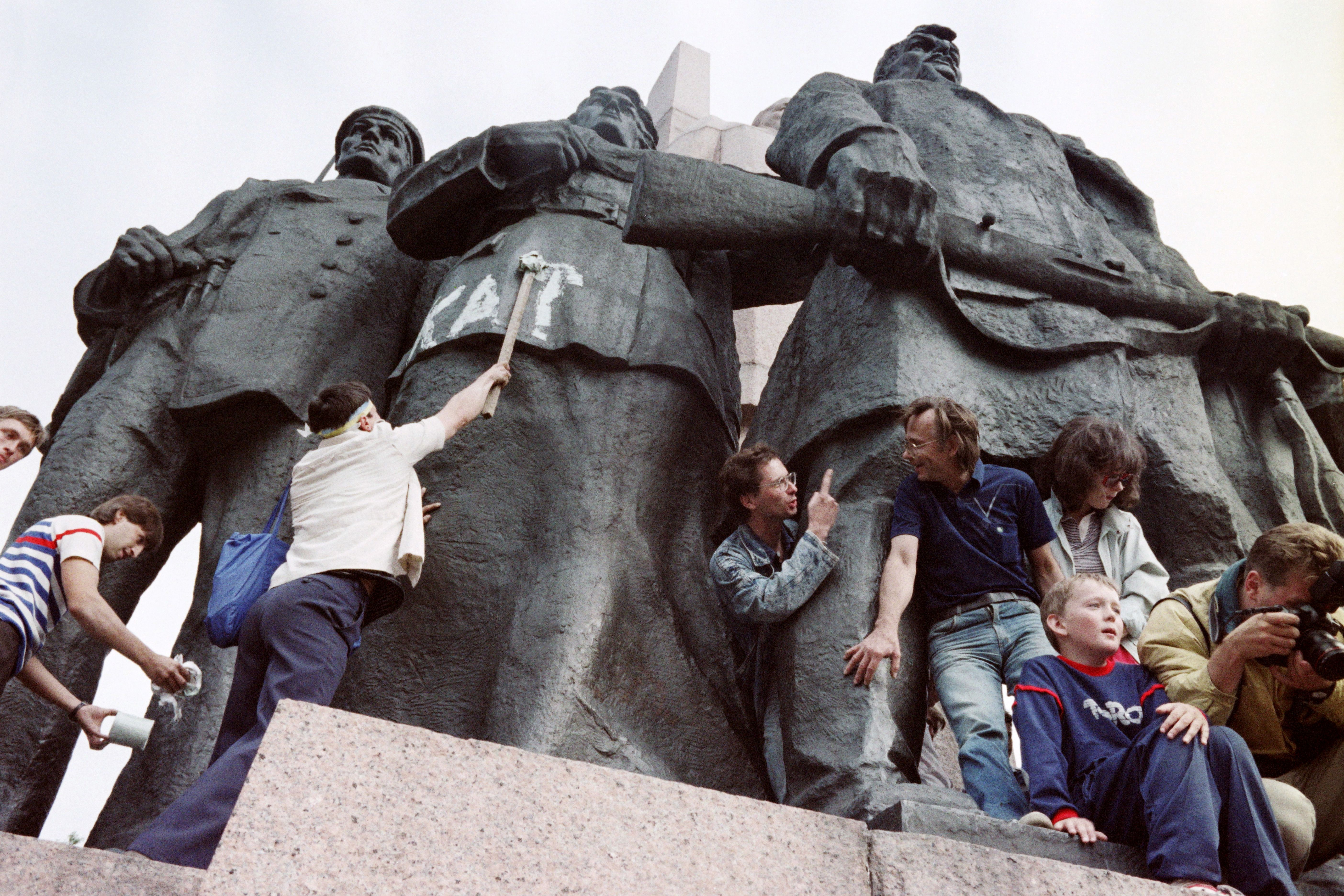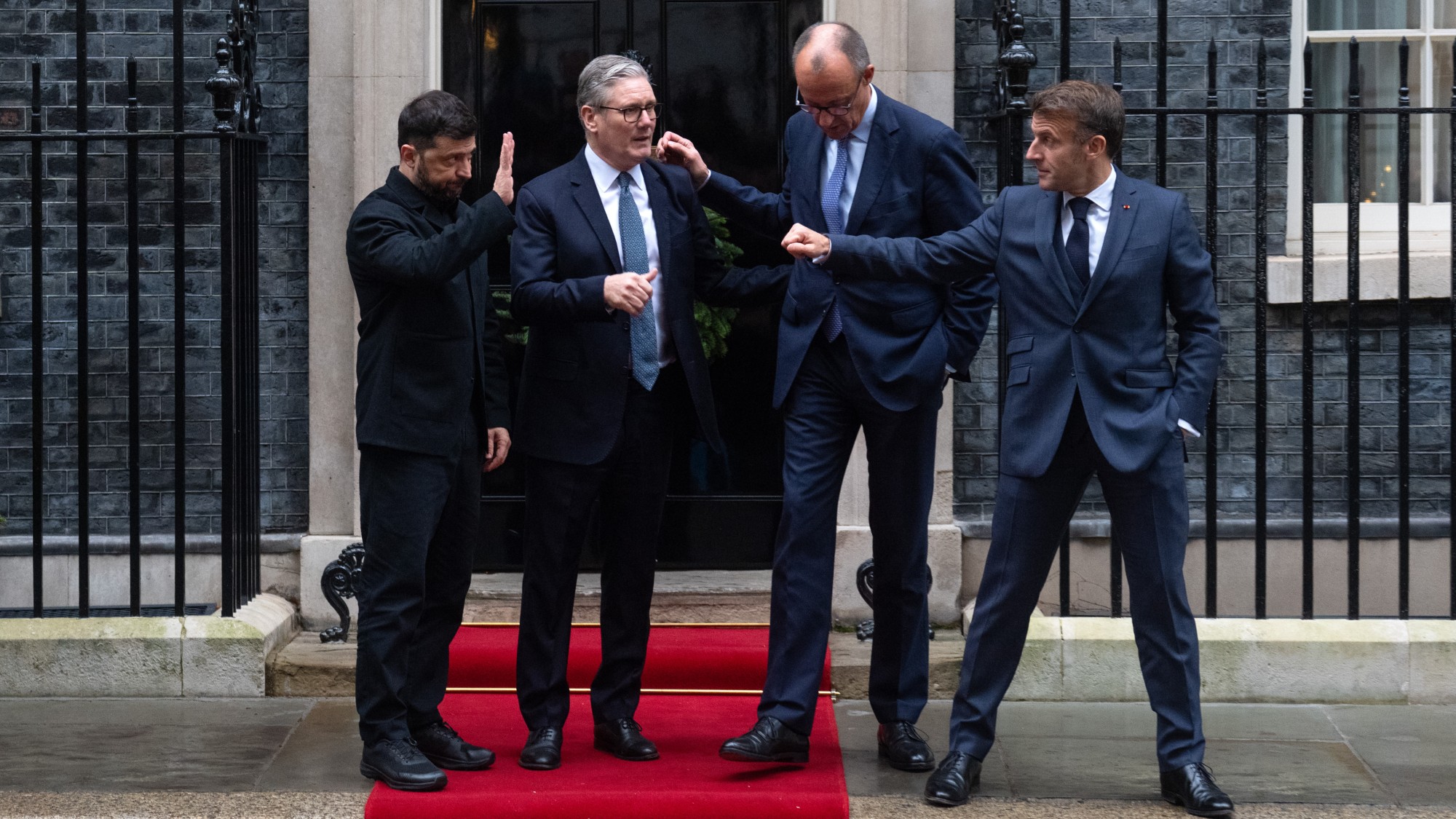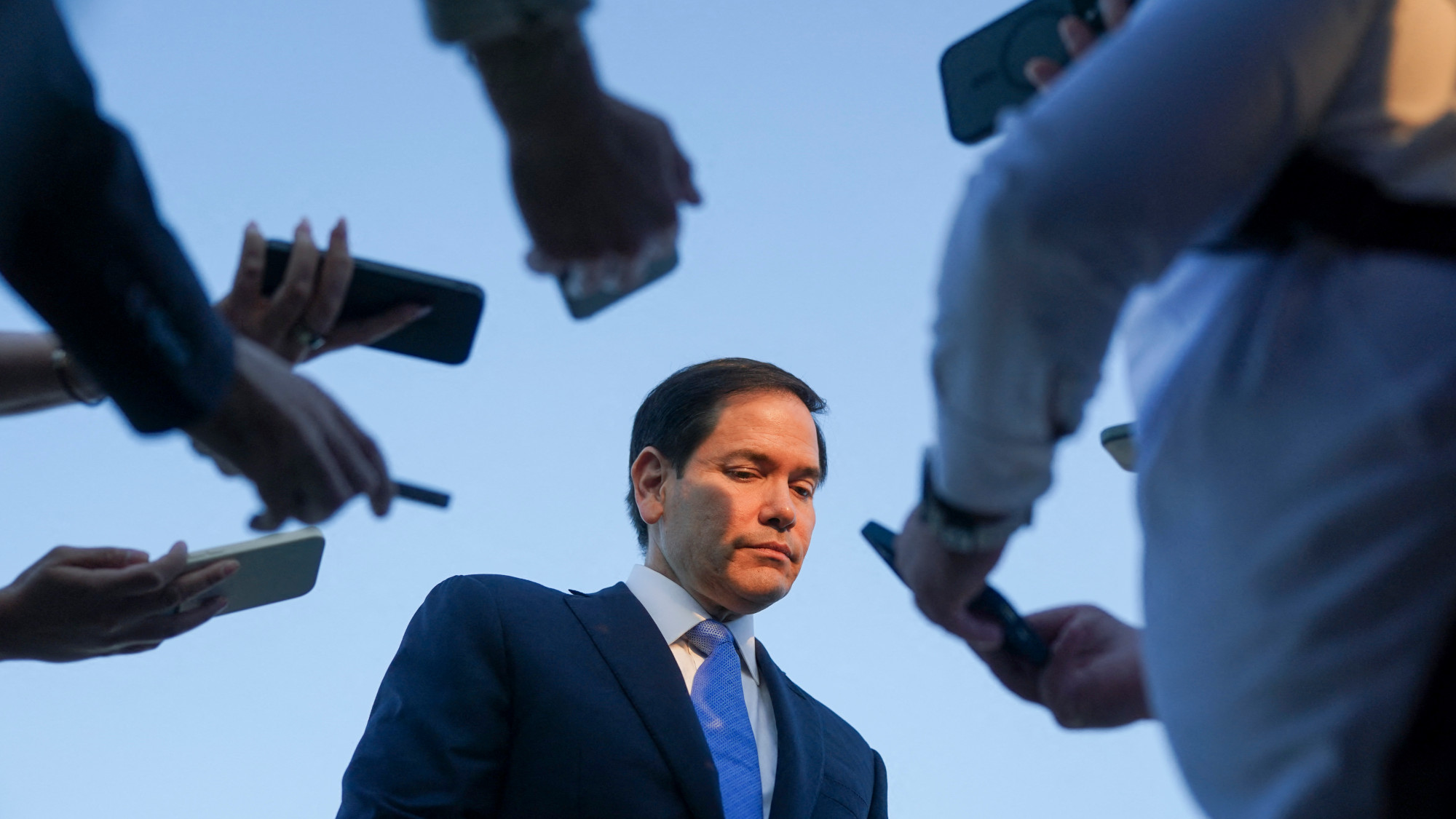Ukraine's long quest for independence
Vladimir Putin says Ukraine has always been part of Russia. What’s the real history?

A free daily email with the biggest news stories of the day – and the best features from TheWeek.com
You are now subscribed
Your newsletter sign-up was successful
What is Putin's claim?
The Russian president insists that there is no separate Ukrainian nation. "Ukrainians and Russians are one people," he declared last year in a 7,000-word diatribe to support his case. Yet Ukrainians have their own language, culture, and history — much of it a litany of Russian oppression. "There has been a strong impulse of Ukrainian nationalism for at least the last century," says historian David Patrikarakos, "[with] the Russians just slapping them down militarily." It's true that both nations trace their roots back to the first East Slavic state, Kievan Rus, which stretched from the Baltic to the Black Sea and lasted from the 9th to the mid-13th century. That medieval empire was founded by Vikings — "Rus" is the Slavic word for red-haired Scandinavians — who swept down from the north, conquered and intermarried with the local Slavic tribes, and established their capital at Kyiv. Russians see the region surrounding Kyiv as the font of their culture and religion: Vladimir the Great converted it to Orthodox Christianity in 988, laying the foundation of the Russian church. But in the 13th century, Kyiv was devastated by Mongol invaders, and power shifted north to a small Rus trading outpost called Moscow.
What happened to Ukraine?
The Week
Escape your echo chamber. Get the facts behind the news, plus analysis from multiple perspectives.

Sign up for The Week's Free Newsletters
From our morning news briefing to a weekly Good News Newsletter, get the best of The Week delivered directly to your inbox.
From our morning news briefing to a weekly Good News Newsletter, get the best of The Week delivered directly to your inbox.
Its territory was carved up by competing powers. Poland and Lithuania dominated it for hundreds of years, but by the end of the 18th century, the Austro-Hungarian empire had taken some of the west and the Russians had grabbed the rest, including the Donbass region. This is when Ukrainian identity grew in earnest, and in 1862 the Ukrainian poet Pavlo Chubynsky wrote "Ukraine Has Not Yet Perished," the song that is now the national anthem. The czars, though, referred to their new territory as "little Russia" and tried to crush the surge of Ukrainian nationalism, banning the speaking of Ukrainian in schools. After World War I, following the collapse of the Russian and Habsburg empires, Ukraine enjoyed a spell of independence. But by 1921, the Red Army had reconquered most of it.
What was Soviet rule like?
Ukraine suffered enormously under the Soviet boot. It was the largest Soviet Socialist Republic after Russia and vitally important, thanks to its fertile farmlands and key Black Sea ports. But Stalin's brutal rule devastated Ukraine. His forced collectivization of farming brought a famine in 1932–33, and up to 7 million Ukrainians died, mostly in the country's east. Ukrainians call that tragedy the Holodomor, meaning "extermination by hunger." Stalin later repopulated the east and the adjoining Crimean peninsula with Russians.
When did independence come?
A free daily email with the biggest news stories of the day – and the best features from TheWeek.com
In 1991, the Soviet Union collapsed, freeing its many republics to choose their own destiny. In a referendum, 92 percent of Ukrainians voted for their independence. For many Russians, the separation from Slavic Ukraine and Belarus was traumatic in a way that the loss of Baltic and Central Asian republics was not, and Putin never accepted it. He's always been determined to keep Ukraine out of the European Union and NATO, and he has used Ukraine's dependence on Russian natural gas as a weapon — cutting off supplies in 2006 as Ukrainians froze in the winter cold. In its first decades of independence, Ukraine was divided between Ukrainian speakers in the west, who wanted to align their country with Europe, and Russian speakers who looked to Moscow. Russia tried to exploit this divide and continued to interfere in Ukrainian politics.
How did Russia interfere?
Ukraine's 2004 election was a showdown between pro-Western Viktor Yushchenko and pro-Russian Viktor Yanukovych. During the campaign, Yushchenko was disfigured when he ate food poisoned with dioxin — an act widely attributed to Russia. After the vote was rigged for Yanukovych, Ukrainians rose up in the Orange Revolution, which culminated in a revote and a victory for Yushchenko. In the 2010 election, though, Russia meddled again — with the help of American political consultant Paul Manafort, who would later go on to chair Donald Trump's 2016 campaign, and Yanukovych regained the presidency. Under Russian pressure, Yanukovych canceled a trade deal that would have brought Ukraine closer to the EU, leading to another uprising that forced him out in 2014 — the Maiden Revolution, or Revolution of Dignity. Enraged, Putin promptly annexed Crimea and sent covert troops into Ukraine's east to start a separatist war.
How has the war expanded?
The war in the east has simmered for years, killing more than 14,000 people. Donetsk and Luhansk declared themselves independent republics — a break that Putin recognized last week, just ahead of his massive invasion of Ukraine. Putin's fantastical thesis, backed by false Russian propaganda, is that Ukrainian President Volodymyr Zelensky is a Western puppet heading a "neo-Nazi" regime that has engaged in a "genocide" of Russians within Ukraine. Zelensky, who's Jewish and a Russian speaker, countered last week with a direct appeal to the Russian people. "You are told that this blaze will bring freedom to the people of Ukraine," he said. "But the people of Ukraine are already free."
The U.S.'s cautious assistance
Ever since Ukraine declared its independence in 1991, the U.S. has sought to guarantee its sovereignty, seeing it as a key bridge between East and West. From the Soviets, Ukraine inherited the third-largest nuclear arsenal in the world, with some 5,000 nuclear weapons. Worried that these weapons could be misused or fall into the hands of terrorists, the U.S., U.K., and Russia signed the 1994 Budapest Memorandum, which transferred the weapons to Russia in exchange for a commitment by Washington, Moscow, and London to respect Ukraine's "independence and sovereignty and existing borders." When Russia broke the pact by seizing Crimea, Ukrainians said the U.S. and U.K. should have done more than impose sanctions on Russia. Now that Ukraine's very existence is at stake, they are begging for as much military aid as the West will offer. President Biden's administration has sent more than $650 million in military assistance over the past year, and Congress is currently discussing hundreds of millions more, in addition to the deployment of additional NATO forces all around Ukraine's European borders.
This article was first published in the latest issue of The Week magazine. If you want to read more like it, you can try six risk-free issues of the magazine here.
-
 ‘Restaurateurs have become millionaires’
‘Restaurateurs have become millionaires’Instant Opinion Opinion, comment and editorials of the day
-
 Earth is rapidly approaching a ‘hothouse’ trajectory of warming
Earth is rapidly approaching a ‘hothouse’ trajectory of warmingThe explainer It may become impossible to fix
-
 Health insurance: Premiums soar as ACA subsidies end
Health insurance: Premiums soar as ACA subsidies endFeature 1.4 million people have dropped coverage
-
 ‘The forces he united still shape the Democratic Party’
‘The forces he united still shape the Democratic Party’Instant Opinion Opinion, comment and editorials of the day
-
 The billionaires’ wealth tax: a catastrophe for California?
The billionaires’ wealth tax: a catastrophe for California?Talking Point Peter Thiel and Larry Page preparing to change state residency
-
 Trump considers giving Ukraine a security guarantee
Trump considers giving Ukraine a security guaranteeTalking Points Zelenskyy says it is a requirement for peace. Will Putin go along?
-
 Vance’s ‘next move will reveal whether the conservative movement can move past Trump’
Vance’s ‘next move will reveal whether the conservative movement can move past Trump’Instant Opinion Opinion, comment and editorials of the day
-
 Bari Weiss’ ‘60 Minutes’ scandal is about more than one report
Bari Weiss’ ‘60 Minutes’ scandal is about more than one reportIN THE SPOTLIGHT By blocking an approved segment on a controversial prison holding US deportees in El Salvador, the editor-in-chief of CBS News has become the main story
-
 Will there be peace before Christmas in Ukraine?
Will there be peace before Christmas in Ukraine?Today's Big Question Discussions over the weekend could see a unified set of proposals from EU, UK and US to present to Moscow
-
 Ukraine and Rubio rewrite Russia’s peace plan
Ukraine and Rubio rewrite Russia’s peace planFeature The only explanation for this confusing series of events is that ‘rival factions’ within the White House fought over the peace plan ‘and made a mess of it’
-
 Has Zohran Mamdani shown the Democrats how to win again?
Has Zohran Mamdani shown the Democrats how to win again?Today’s Big Question New York City mayoral election touted as victory for left-wing populists but moderate centrist wins elsewhere present more complex path for Democratic Party